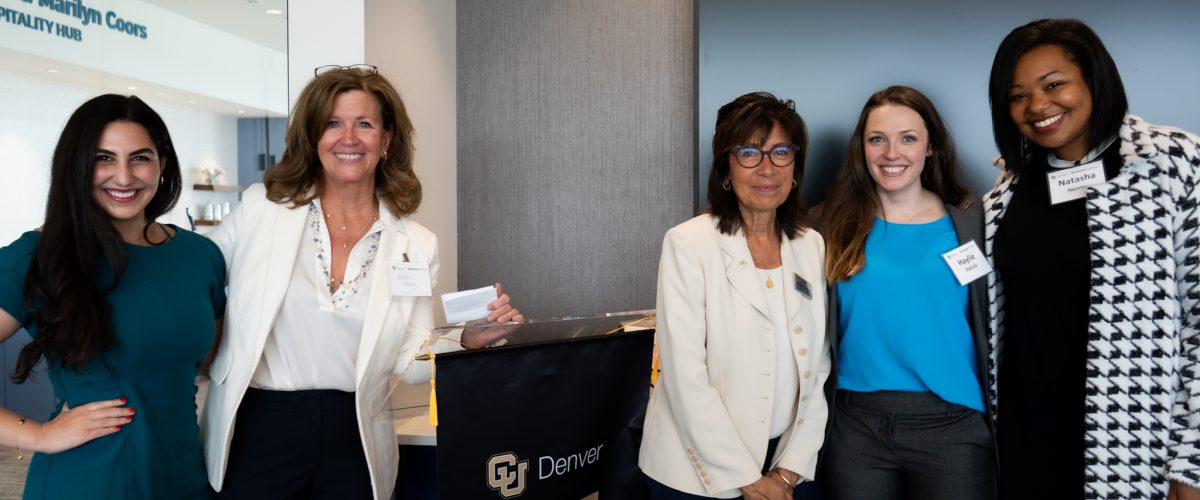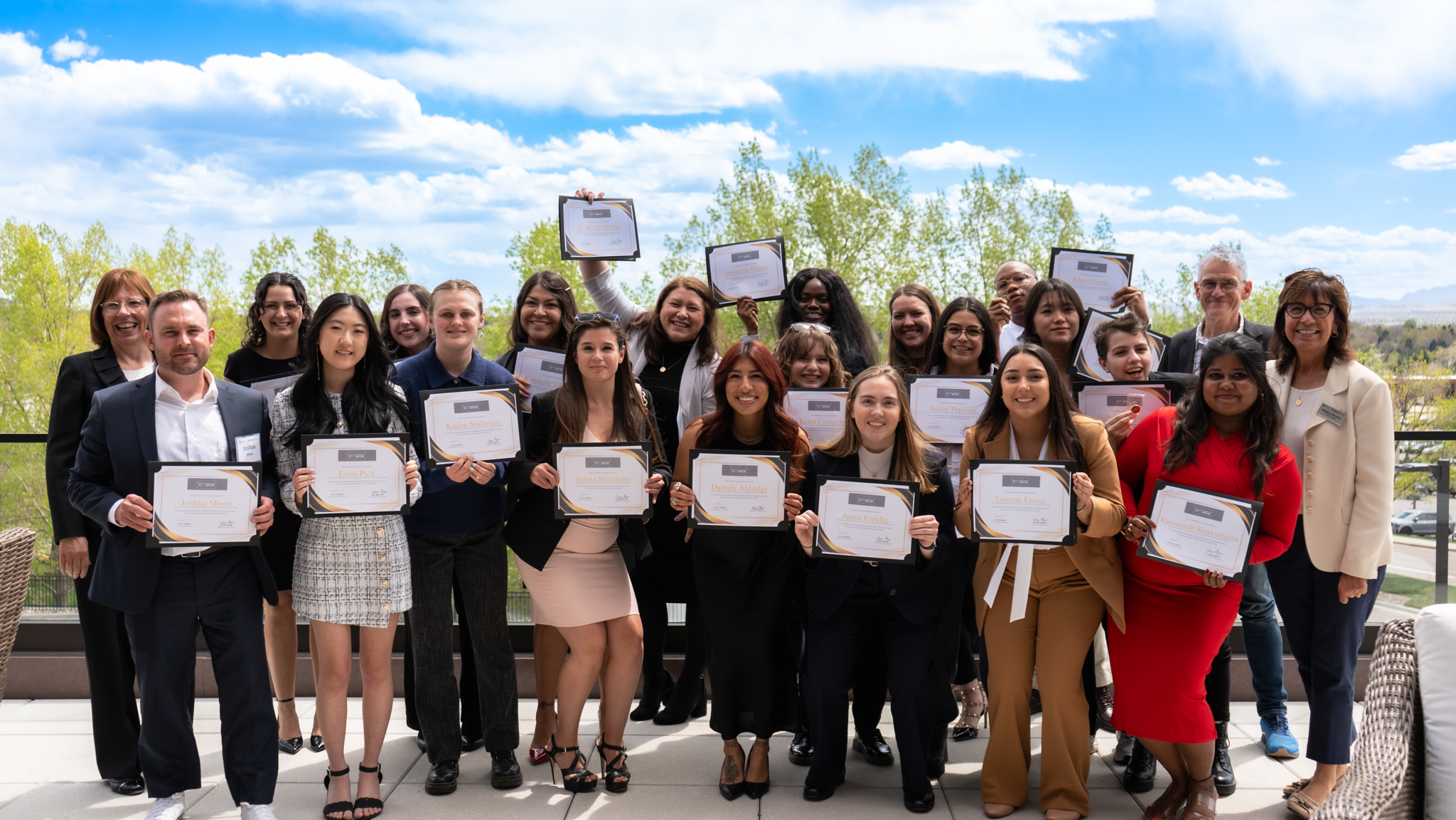Women face workplace challenges not faced by their male counterparts. Inadequate support systems, social constraints, and underrepresentation in key fields are only some hurdles women in business must overcome. To support the diverse future of business, the CU Denver Business School offers an Empowering Women in Business course, which couples instruction with mentorship to empower the next generation of business leaders. The learning culminates in case studies on female entrepreneurs presented at the end-of-semester symposium.
The symposium opened with a discussion entitled “Advancing sponsorship and allyship,” where panelists Frannie Matthews and Kelly Stevens advised navigating mentorship. The two presented mentorship as a network rather than a hierarchy, where learning is a two-way street between mentor and mentee. Stevens also recommended not being scared to ask for mentorship but instead being bold. Leadership was also discussed by the panel, and Stevens encouraged students to realize that “you’re all leaders right now.”
Following the panel were student case study presentations. One group chose to analyze the DEI shortcomings of Samsung and described how failure to keep up with diverse initiatives is becoming an issue for the company. The other groups focused their study on the work of female entrepreneurs, including Arlan Hamilton, who used her “radical self-belief” to go from homeless to a successful career in venture capitalism; Kim Kiyosaki, who was fired from her first job twice but was able to turn failure into success and become co-founder and CEO of the Rich Dad Company; First female CEO of GM Mary Barra whose transformative leadership brought her company back from the ashes; and Martha Stewart, the first female self-made billionaire who used her strong personal branding to come back from her imprisonment. These case studies allowed students to connect class teachings with real stories of female entrepreneurship (and lack thereof in the case of Samsung).
Lunch and a presentation by Chief US Economist Ellen Zentner followed student presentations. Immigration was a key point in the presentation, with Zentner showcasing immigration’s effects on the U.S. economy. Increased immigration leads to more spending and a bigger economy. According to Zentner, many states take advantage of this and have created systems to allow immigrants to work legally shortly after arriving in America. However, Colorado needs to catch up to other states in this regard, potentially alienating a large percentage of the potential workforce. Zentner also touched on the impacts women have on the economy. Since COVID, women’s participation in the workforce has risen, and single women are the fastest-growing cohort in America. This is largely due to the increased availability of family planning, which has allowed more women to enter the workforce than ever before.
After lunch, students were allowed to engage with a panel of female entrepreneurs early in their careers. Ariana Lily Nikmanesh, Natasha Herring, and Haylie Patrick provided invaluable insight into navigating one’s career after graduation. One point the group focused on was the importance of self-care. Early in one’s career, giving it your all 100% of the time can be tempting. However, this invites burnout and can lead to your physical and mental health being negatively impacted. Curating work-life balance and setting boundaries to protect your well-being can seem daunting, but they are key to a thriving career. Self-advocacy was also discussed by the panel. Herring recalled a time when she didn’t align with a supervisor and had to use self-advocacy to request a new supervisor, which led to a more cohesive work environment. Advocating for oneself is also useful when seeking mentorship or new employment opportunities. Having the confidence to be your number one advocate can open new doors and lower barriers to success.

The symposium concluded with the graduation of the second Empowering Women in Business cohort. “I found myself not only enriched with newfound knowledge but also surrounded by friendships that would endure beyond the confines of our classroom,” alumna Kanimozhi Sivakumaran wrote. Erica Park, another alumna, wrote, “It’s been an incredible journey of growth and empowerment, and I’m eager to apply what I’ve learned to future endeavors.”
CU Denver Business School’s Empowering Women in Business course is more than a class. It creates a community of empowerment and support from which both women and non-women reap incredible benefits. For more information, please contact malena.brohm@ucdenver.edu.


